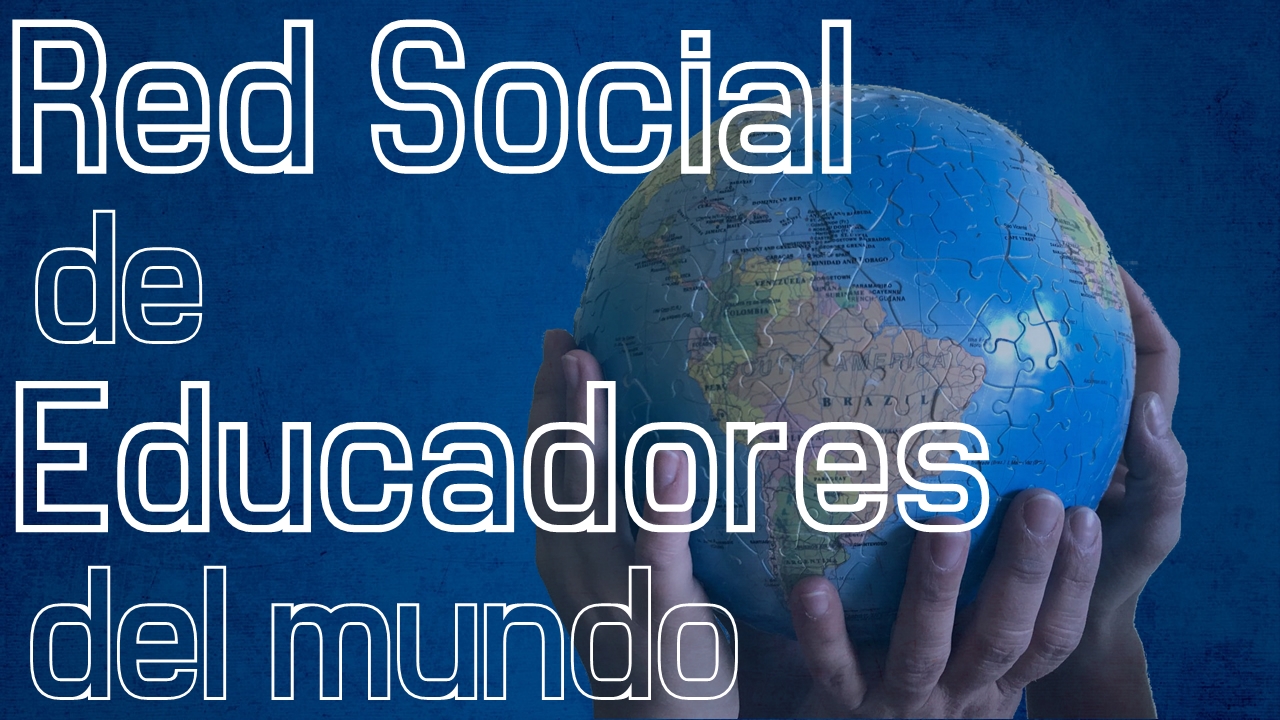Cofundador de The Curriculum Foundation, Richard Gerver es mundialmente reconocido como uno de los líderes educativos más inspiradores de su generación. Actualmente, Gerver trabaja compartiendo sus experiencias y conocimientos sobre la transformación de la educación y la creatividad humana por todo el mundo. Es autor del bestseller Creating Tomorrow's Schools Today (Dic. 2009). Además, ha trabajado como asesor de política educativa con el gobierno de Tony Blair.
Usted es considerado un referente en innovación educativa. ¿Cómo definiría a un profesor que innova en sus clases hoy en día?
You are considered as a reference in innovating education. How would you define a teacher who innovate in his/hers classroom nowadays?
Los profesores deben, sobre todo, demostrar un compromiso hacia la investigación activa. Los profesores deberían estar continuamente cuestionándose su práctica educativa... deben estar comprometidos con entender a sus estudiantes y responder a sus necesidades, deben adecuar su proceso educativo a los desafíos con los que sus estudiantes se enfrentarán en un futuro, no solamente para sobrevivir, sino también para prosperar, pero prosperar en el mundo que heredarán de nosotros. Y, lo más importante, deben tener el coraje para hacer lo que está bien para los niños primero y para los políticos después; ¡y esto no siempre es fácil!
Teachers must above all things demonstrate a commitment to action research. They should always be questioning their practice... they must be committed to understanding their students' contexts and responding to their needs, they must reference their process against the challenges their pupils will face beyond school and understand and utilize the key skills and competencies that their students will need, not just to survive, but to thrive in the world they will inherit from us. Most importantly, they must have the courage to do what is right for the children first and politicians second; this is not always easy!

Muchas veces la gente no sabe cómo distinguir entre innovar y usar las TICs sin ningún tipo de criterio. ¿Cómo podemos evitar estos errores?
Many times people don't know how to distinguish between innovating and using TIC's without any criteria. How could we avoid these mistakes?
La pregunta fundamental es siempre la misma: ¿qué es lo bueno para mis estudiantes? La innovación se convierte en una anarquía si no está centrada ni tiene un resultado claro. La innovación es la respuesta creativa a un problema o desafío; en este contexto, el desafío es preparar a nuestros niños para la complejidad de su futuro... todo lo que debemos hacer debe estar relacionado con este criterio fundamental.
The critical question to ask is always; what is right for my students. Innovation becomes anarchy if there is no focused and demonstrable outcome. Innovation is the creative response to a problem or challenge; in this context, the challenge is to prepare our children for the complexities of their futures... everything we do must relate back to that fundamental criterion.
¿Cuál cree que es la clave para entender las nuevas tecnologías como un paso hacia delante en vez de hacia atrás?
Which one do you think is the point to understand new technologies as an step forwards instead of backwards?
Las nuevas tecnologías son herramientas para aprovechar y desarrollar el potencial humano, la comprensión y la comunicación; las tecnologías por sí mismas no son la respuesta. Como educadores debemos comprender el cambio en un contexto social que la tecnología ha traído y las nuevas destrezas que la gente joven necesitan manejar para vivir satisfactoriamente dentro de ese paradigma. Debemos asegurarnos de que no caemos en la trampa de creer que sólo porque utilizamos iPads o pizarras digitales estamos innovando; no lo estamos haciendo... es la comprensión del cambio dentro de las estructuras sociales que la tecnología ha traído y la innovación alrededor de esos desafíos lo que demostrará que hemos hecho evolucionar la educación hacia el siglo XXI.
New technologies are tools to harness and develop human potential, understanding and communication; technologies in themselves are not an answer. As educators we must understand the change in social context that technology has brought and the new skills that young people need to master in order to exist successfully in that paradigm. We must ensure that we don't fall in to the trap of believing that just because we use iPads or interactive whiteboards that we are innovating; we're not... it is the understanding of the change in social structures that technology has brought and innovating around those challenges that will demonstrate that we have moved education forward into the 21st century.

Cada vez hay más redes sociales y los adolescentes saben perfectamente cómo utilizarlas. ¿Qué edad podría ser la adecuada para empezar a utilizar estas nuevas herramientas? ¿Por qué?
There are more and more social networks these days and teenagers perfectly know how to use it. Which age could be the right one for teenagers to begin using these new tools? Why?
Depende de la red y de la seguridad que la rodee. Mi hijo usaba Club Penguin cuando tenía cuatro años y mientras se hacía mayor, se graduó en Facebook y Twitter... Cuanto más jóvenes enseñemos a los niños a utilizar el poder de las redes sociales productivamente, mejor. La realidad es que las redes sociales y la revolución digital han roto muchas de las paredes de control que solían existir. La gente joven utiliza las redes sociales formalmente e informalmente desde una edad muy temprana y esto es prácticamente imposible de frenar. Si actuamos en consecuencia, nuestro trabajo no puede intentar controlar sino educar; hay una gran diferencia.
It depends on the network and the security around it. My son was using Club Penguin when he was four and as he has got older, he has graduated to Facebook and Twitter... The younger we teach children about how to use the power of social networks productively, the better. The reality is that social networks and the digital revolution have broken down many of the walls of control that used to exist. Young people use networks formally and informally from a very early age and it is virtually impossible to stop them. Our job cannot therefore be to try and control but to educate; there is a massive difference.
¿Ha leído alguna vez algo sobre la escuela de Summerhill, la escuela propuesta por A. S. Neill? ¿Cree en una educación como esa?
Have you ever read anything about Summerhill school, the school proposed by A. S. Neill? Do you believe in an education like that one?
Soy muy consciente de Summerhill y pudo ser un buen negocio, sin embargo, los niños necesitan reglas y orientación; es fundamental para su sentido de bienestar y su emergente civismo. Lo que Summerhill nos ha enseñado es a debatir y a marcar verdaderamente la diferencia hasta el punto que hice en respuesta a la última pregunta; la diferencia entre control y educación. La buena educación nos lleva a un profundo sentido de identidad personal, de aspiración, de responsabilidad y de potencial humano y que, en parte, es sobre lo que yo pienso que trataba Summerhill. Sin embargo, la educación necesita desarrollarse con destrezas, metodológicamente y con una estructura con el fin de ayudar a la gente joven a darse cuenta de sus habilidades y de asegurarse de que tienen las herramientas básicas necesarias para explotarlas.
I am well aware of Summerhill and it had a great deal going for it, however, children need rules and guidance, it is fundamental to their sense of well-being and emerging citizenship. What Summerhill has taught us is to really debate and define the difference to the point I made in response to the last answer; the difference between control and education. Great education leads to a profound sense of personal identity, aspiration, responsibility and human potential and that, in part, is what I think Summerhill was about. However, education needs to develop core skills, methodically and with structure in order to help young people realize their abilities and ensure that they have the basic tools to exploit them.
Cada vez hay más colegios cuyos profesores evitan los tradicionales horarios escolares, las mochilas de los estudiantes llenas de libros e incluso, los exámenes para evaluar. ¿Cree que esos estudiantes estarán realmente preparados en el futuro para enfrentarse a las dificultades de nuestro competitivo mundo?
There are more and more schools whose teachers avoid the traditional school timetables, the students' bags full of books and even the exams to evaluate. Do you think these students would be ready in the future to face the difficulties of our competitive world?
Siempre y cuando la escuela trabaje con los estudiantes, para ayudarles a desarrollar su sentido de resiliencia y ambición; libros y horarios no enseñan fuerza de carácter, sino simplemente sumergen a la gente joven en un mundo artificial de certezas. Los colegios deben enseñar responsabilidad individual y grupal. Debemos recordar que las sociedades están en su momento más poderoso cuando hay un profundo sentido de colaboración y que esta colaboración no puede ser ignorada en un mundo competitivo.
As long as the school works with the students, to help them develop their sense of resilience and ambition; books and timetables do not teach strength of character they simply immerse young people in an artificial world of certainty. Schools must teach personal and group responsibility. We must remember that societies are at their most powerful when there is a deep sense of collaboration and that cannot be ignored in a competitive world.

Usted afirma firmemente que es posible hacer que los estudiantes se sientan motivados y que sientan placer cuando aprenden. ¿Cuál es la clave para lograrlo?
You firmly state that it is possible to make the students be motivated and fell pleasure when learning. Which is the clue to achieve it?
La clave es pensar como un experto de marketing. Debemos respetar y comprender lo que hace que la gente joven desarrolle un sistema educativo que reconozca y celebre sus culturas; deben estar inmersas en un aprendizaje que es rico en su contexto, relevancia y desafío... los buenos profesores crean un estilo de vida irresistible para sus estudiantes, cuyos niños quieren asimilar. Los buenos profesores no controlan a través del miedo.
The key is to think like an advertising expert. We must respect and understand what makes young people tick and develop an education system that recognizes and celebrates their cultures; they must be immersed in learning that is rich in context, relevance and challenge... great teachers create an irresistible lifestyle for their students, which children want to buy in to. Great teachers don't control through fear.
¿Cree que vivir en nuestra sociedad de la información y del conocimiento nos puede hacer tanto a profesores como a alumnos hacer todo demasiado rápido y sin una comprensión real del tema cuando preparamos una clase, cuando aprendemos, etc.? Si está de acuerdo con ello, ¿cuál puede ser la clave para introducirnos en el tema del aprendizaje de manera profunda en una sociedad como la nuestra?
Do you think that living in our information and knowledge society could make both teachers and students make everything too fast and without a real comprehension when preparing a lesson, when learning...? If you agree with this statement, which could be the point to go into the topic of learning in any depth in a society like ours?
Todos gastamos tiempo en las cosas que nos gustan, si eso no fuera verdad, los partidos de fútbol no durarían noventa minutos ni la temporada ocho meses. La profundidad en la comprensión es vital, así como el compromiso por el continuo cuestionamiento de nuestro propio pensamiento, desafiándonos a nosotros mismos y creando culturas que son conducidas por compromisos de aprender que duran toda la vida. Para hacer esto, debemos siempre intentar salir de nuestras propias zonas de confort por iniciativa propia y nunca dejar de cuestionarnos. Las clases no deben alargarse artificialmente; deben ser frescas y dinámicas, pero eso no quiere decir que deban carecer de profundidad... verdaderamente, demasiadas clases de colegios son aburridas porque los profesores hablan demasiado y los alumnos aprenden demasiado poco. Debemos dedicar más tiempo cultivando el estudio independiente y menos tiempo enseñando de memoria.
We all spend time on the things we love, if that wasn't true, football matches wouldn't be 90 minutes long and a season last 8 months! Depth of understanding is vital, as is a commitment to the constant questioning of our own thinking, challenging ourselves and creating cultures that are driven by lifelong commitments to learning. To do this, we must always look to push ourselves outside of our own comfort zones and never stop looking. Lessons must not be drawn out artificially; they should feel fresh and dynamic, but that doesn't mean that they should lack depth... In truth, in too many schools lessons are boring because teachers talk too much and children learn too little. We must spend more time nurturing independent study and less time teaching by rote!
Desde muy pequeños, a los estudiantes de hoy en día se les enseña a manejar sus emociones, su pensamiento crítico y su empatía. ¿Son todas estas cosas suficientes para ellos para conseguir un trabajo apropiado o necesitan algo más?
Since they were very little, the nowadays' students are taught how to deal with their emotions, with their critical thinking and with empathy. Are all these things enough for them to get an appropriate job or do they need anything more?
Una de las razones por las que el mundo está tan liado, económicamente, medioambientalmente y socio-étnicamente, es por la falta de una verdadera profundidad de inteligencia emocional... Los jóvenes que darán las más grandes zancadas en el futuro necesitarán ser unos fantásticos comunicadores y lideres, lo que requiere una fantástica inteligencia emocional. Por supuesto, estas destrezas no son suficientes por ellos mismos pero deben ser respetadas y nutridas en la educación dominante y más allá si queremos que nuestro planeta tenga algún tipo de futuro a largo plazo.
One of the reasons the world is in such a mess; economically, environmentally and socio-ethnically is because we lack a real depth of emotional intelligence... The young people who will make the most significant strides in their future will need to be fantastic communicators and leaders, that requires fantastic emotional intelligence. Of course, these skills are not enough by themselves but they must be respected and nurtured in mainstream education and beyond if our planet is to have any kind of long term future.
¿Qué opinión tiene del bilingüismo? ¿Cree en una enseñanza bilingüe? ¿Cuál cree que es la clave para hacer de este tipo de enseñanza algo útil?
What do you think about bilingualism? Do you think this kind of teaching (and learning) is possible? How do you think may be the point to make this kind of teaching useful?
Los niños que nacen en familias que tienen más de una lengua materna adquieren sin esfuerzo las lenguas en esas familias de forma natural. Nuestros receptores lingüísticos están en su mejor momento hasta que tenemos siete años, cuando empiezan a degenerarse. Esto quiere decir que nacemos como aprendices de la lengua y cuanto más utilicemos esa habilidad natural, más fácil nos será aprender una lengua. También vivimos en una comunidad global, donde, como acabo de decir, la comunicación es la destreza por excelencia; ser capaces de comunicarse más allá de las fronteras y lenguas sólo puede ser una gran baza. Los británicos son los peores en esto porque el inglés es su lengua corriente para los negocios y porque muchos de nuestros niños son monolingües; cada vez somos menos competitivos.
Children born into families that have more than one mother tongue pick up all the languages in that family naturally. Our language receptors are at their most powerful until we are 7 years old, when they start to degenerate. This means that we are born as language learners and the more we utilize that natural ability the easier language learning is. Also we live in a global community, where as I have already said, communication is the premium skill; being able to communicate across borders and languages can only be a major asset. The British are the worst at this because English is the current language of business but because so many of our children are mono lingual, we are becoming less and less competitive.

Por último, ¿qué consejos daría a los lectores de E-innova, que apuestan por conseguir una educación mejor?
To finish, which advice(s) would you tell E-innova readers who want to achieve a better education for the future?
Mirad más hacia el futuro y menos hacia el pasado. Aseguraos de que la educación sea siempre relevante y siempre se construya alrededor del poder no del control. La educación es responsabilidad de toda la sociedad no solamente de los profesores. Sobre todo, tened seguridad como profesionales para controlar el entorno formal de aprendizaje; recordad que los políticos no pueden ver fuera de ciclos de cuatro años, los educadores están comprometidos con sus estudiantes para toda su vida. Finalmente, por favor, recordad que la educación es el fundamento de la sociedad, lo que significa que aquellas personas que hayan elegido enseñar son las personas más importantes en el mundo de hoy; ¡no dejar nunca de vivir, aprender y reír!
Look more to the future and less to the past. Make sure that education is always relevant and always built around empowerment not control. Education is the responsibility of entire societies not just teachers. Above all; have the confidence as a profession, to take control of the formal learning environment; remember politicians can't see outside of four year cycles, educators are committed to students for a lifetime. Finally, please remember that education is the foundation of society which means that those people who have chosen to teach are the most important people in the world today; never stop living, learning and laughing!







